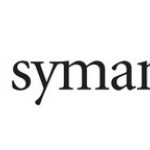- Industri: Computer
- Number of terms: 2033
- Number of blossaries: 0
- Company Profile:
Symantec Corporation is an computer security software corporation headquartered in Mountain View, California, United States. It is a Fortune 500 company and a member of the S&P 500 stock market index.
A software program that requests the use of a network service. In this context, a browser is considered a client program. Sometimes the term client is used to refer to hosts (PCs, workstations) on which the client software runs, as in the question, "How many clients are behind the firewall?"
Industry:Network hardware
This term is most often used when describing service redirection, and refers to an additional IP address that is assigned to the firewall's outside NIC through host routes on the Internet router (not through the network control panel on the firewall, as Raptor Firewall does not support this).
Industry:Network hardware
Refers to the firewall's practice of concealing the IP addresses of hosts behind the firewall. For outbound traffic, the firewall, by default, substitutes its public IP address for the client's address in the source field of the packet. For inbound traffic, the firewall, by default, substitutes its private IP address for the client's address in the source field of the packet. Both of these practices can be changed by enabling client-side transparency on the firewall's outside and inside NICs, respectively. Due to routing restrictions, enabling client-side transparency on the firewall's outside NIC should never be done for those sites that use reserved addresses or illegal addresses behind the firewall.
Industry:Network hardware
Local tunnelling is the basically the same as packet filtering. Packets that pass through the filter/tunnel are unaltered, hence, address hiding, traffic logging, and authorization using rules do not occur. Access to the tunnel can be controlled by source and destination IP address, traffic direction, and port number.
Industry:Network hardware
A net entity is a network object, such as a host, a subnet, or a group containing hosts and/or subnets. Net entities can be used to build rules, filters, tunnels, and VPNs.
Industry:Network hardware
Another way of referring to servers that provide the NNTP service. News is a free-form discussion forum on a multitude of topics.
Industry:Network hardware
Refers to an authoritative DNS server that receives domain/zone information (that is, the DNS resource records it is responsible for) by requesting this information from the primary server for the domain in a process known as a zone transfer. The main reason secondary servers were invented was to lower administrative burden. In other words, the administrator only has to maintain the primary server, after which the zone transfer mechanism ensures that the secondary servers are automatically updated.
Industry:Network hardware
The opposite of static authentication. In dynamic authentication, the usernames and passcodes for the authentication scheme exist on the authentication server and not on the firewall. Hence, the firewall dynamically (that is, on an "as needed" basis) gets usernames and passcodes for authentication. Dynamic authentication is supported for ACE, Defender (SNK), Radius, CRYPTOCard, TACACS+, and NT Domain.
Industry:Network hardware
A logical association of hosts, subnets, and/or domains that can be used to build the endpoint for an authorization rule or filter. Entity groups are created and managed from the Net Entities button on the RCU toolbar or in the Net Entities tree of the RMC. Entity groups should not be confused with the groups of usernames that are used in conjunction with authentication.
Industry:Network hardware
Reserved addresses are a bank of IP addresses set aside for Intranet use. They are not registered to any network, and hence, are not routable across the Internet. RFC 1597 and its replacement, RFC 1918, are the documents that specify the range of reserved addresses. At this writing, these ranges are 10.0.0.0 to 10.255.255.255, 172.16.0.0 to 173.31.255.255, and 192.168.0.0 to 192.168.255.255.
Industry:Network hardware
